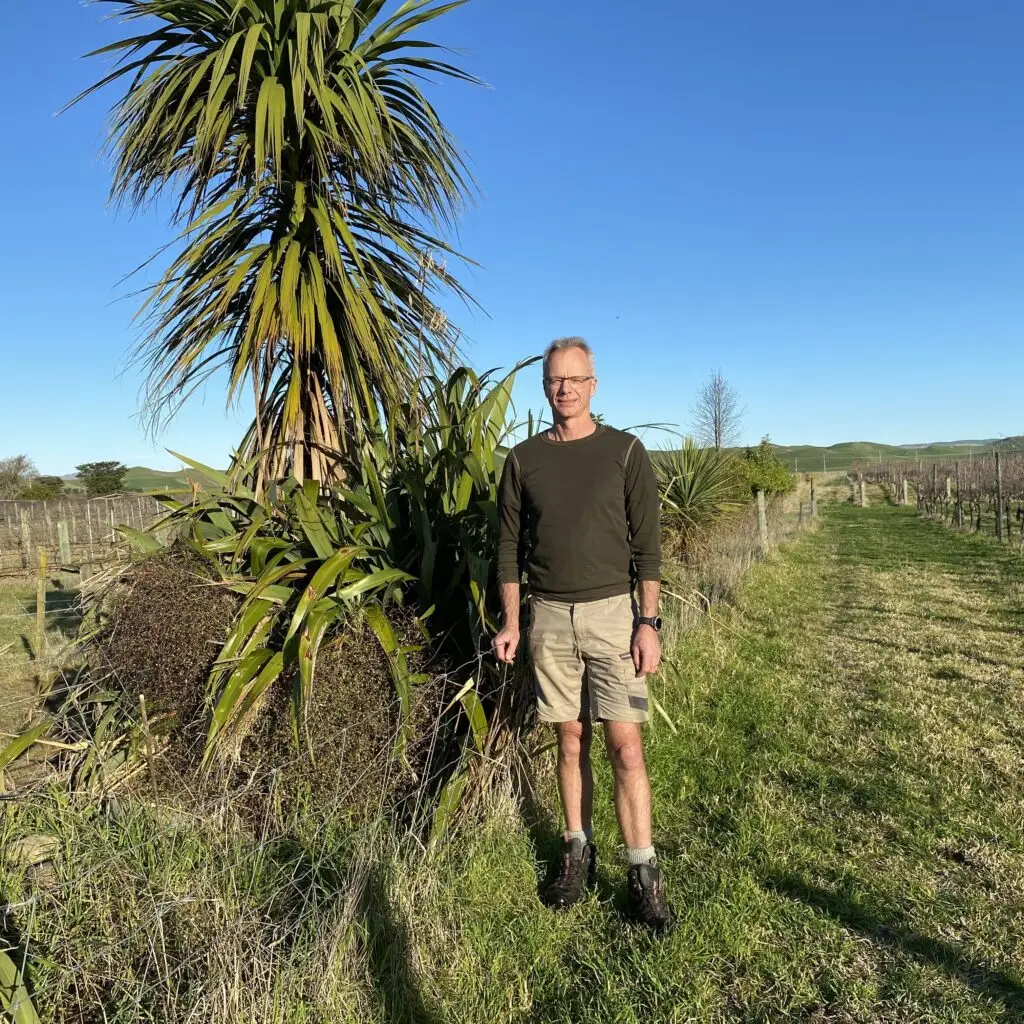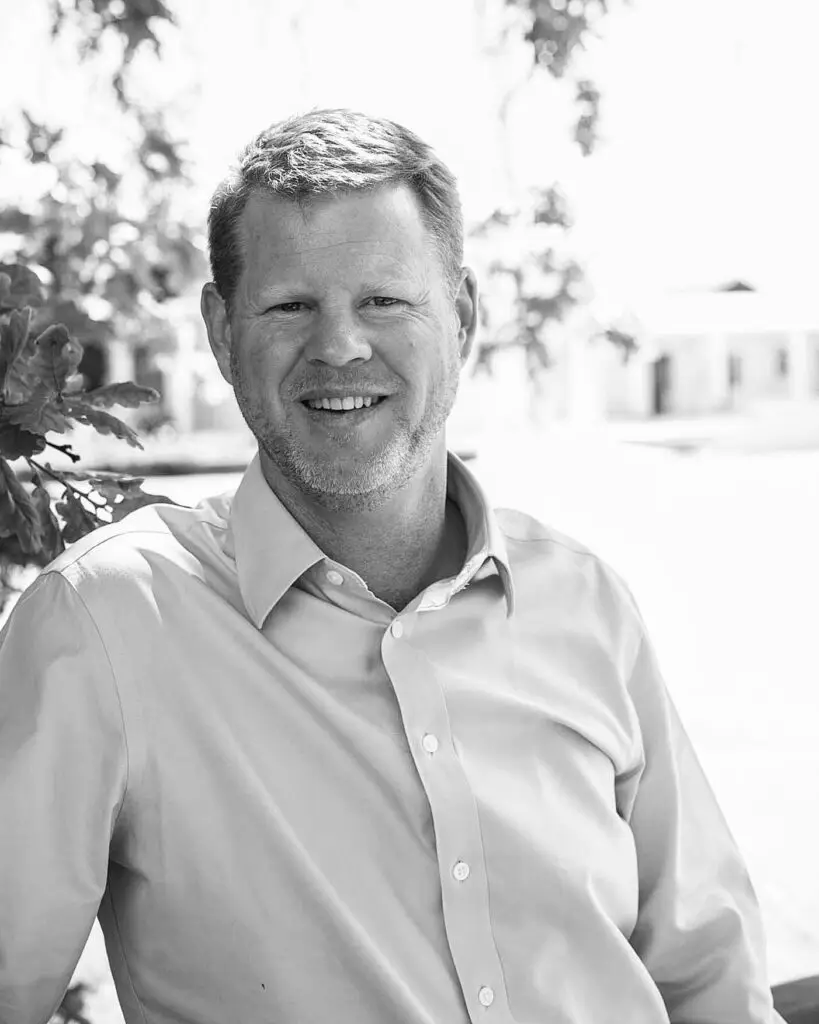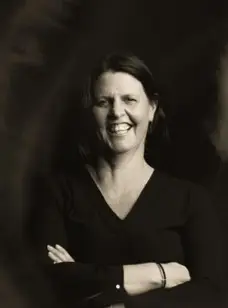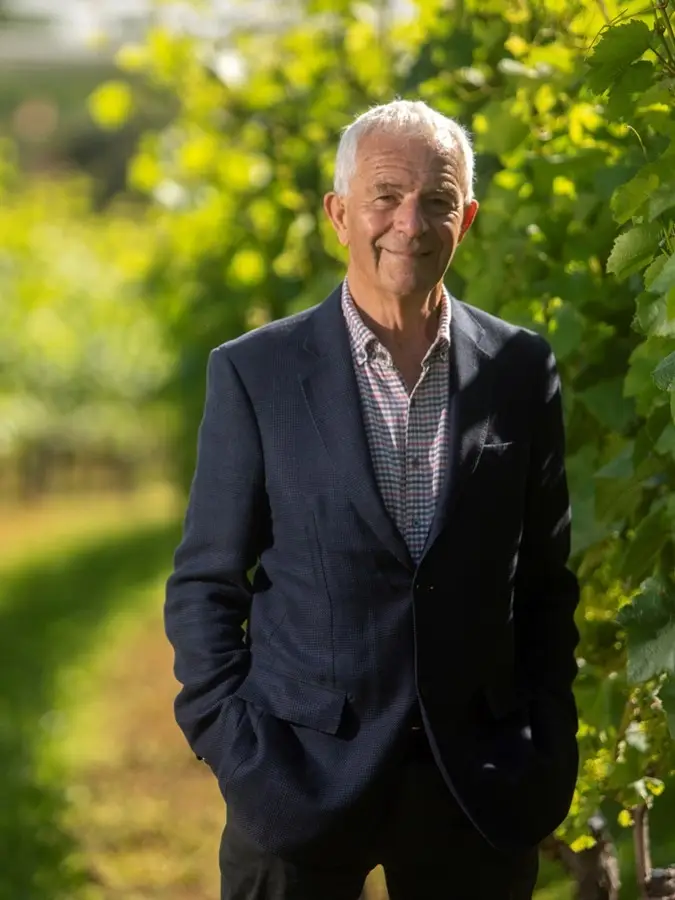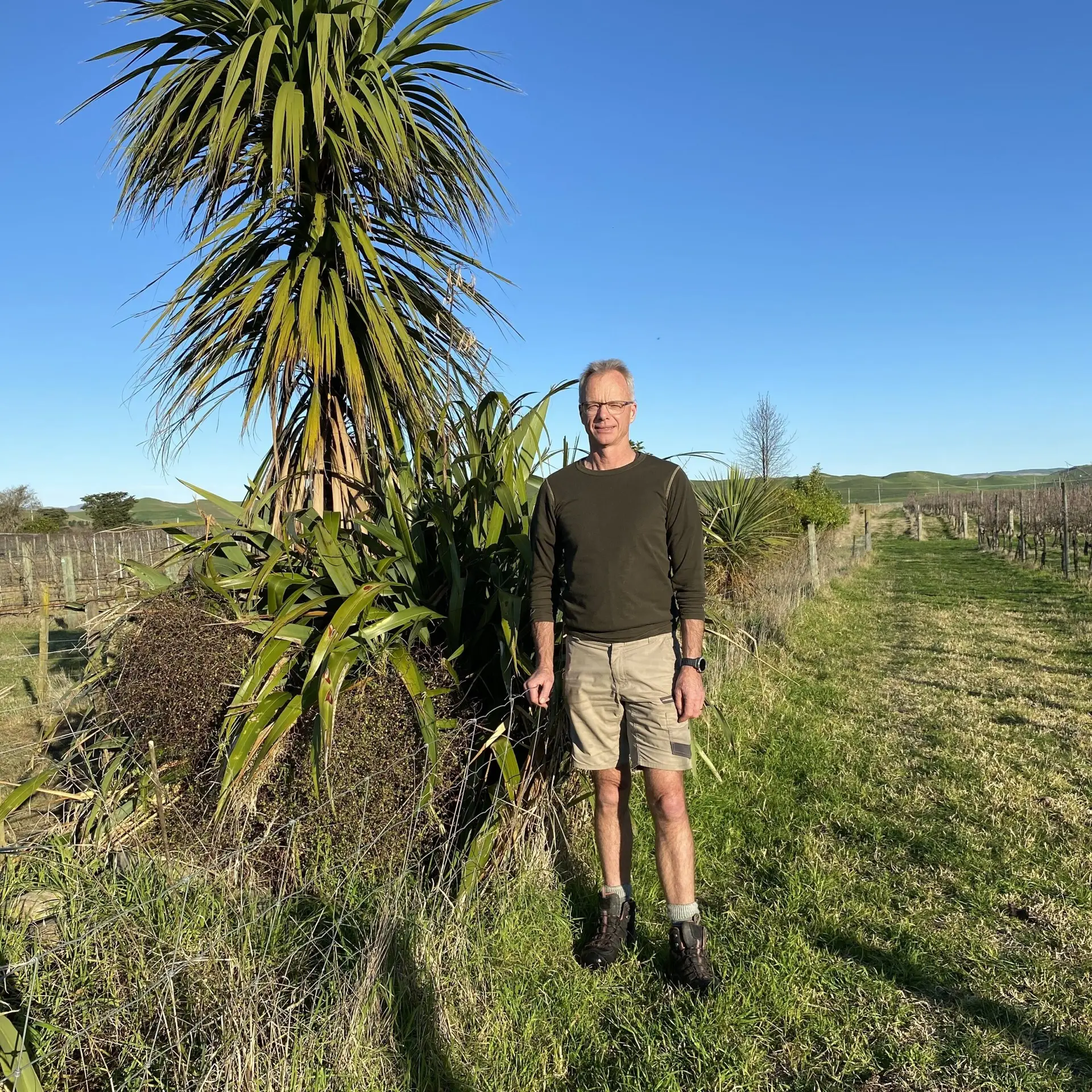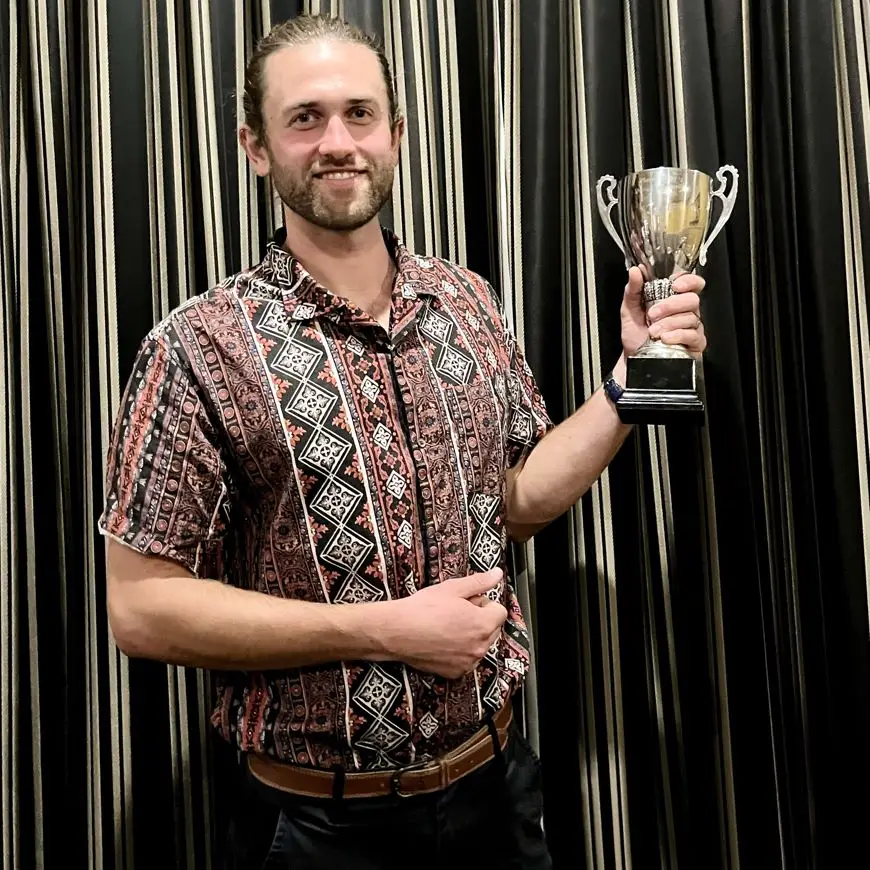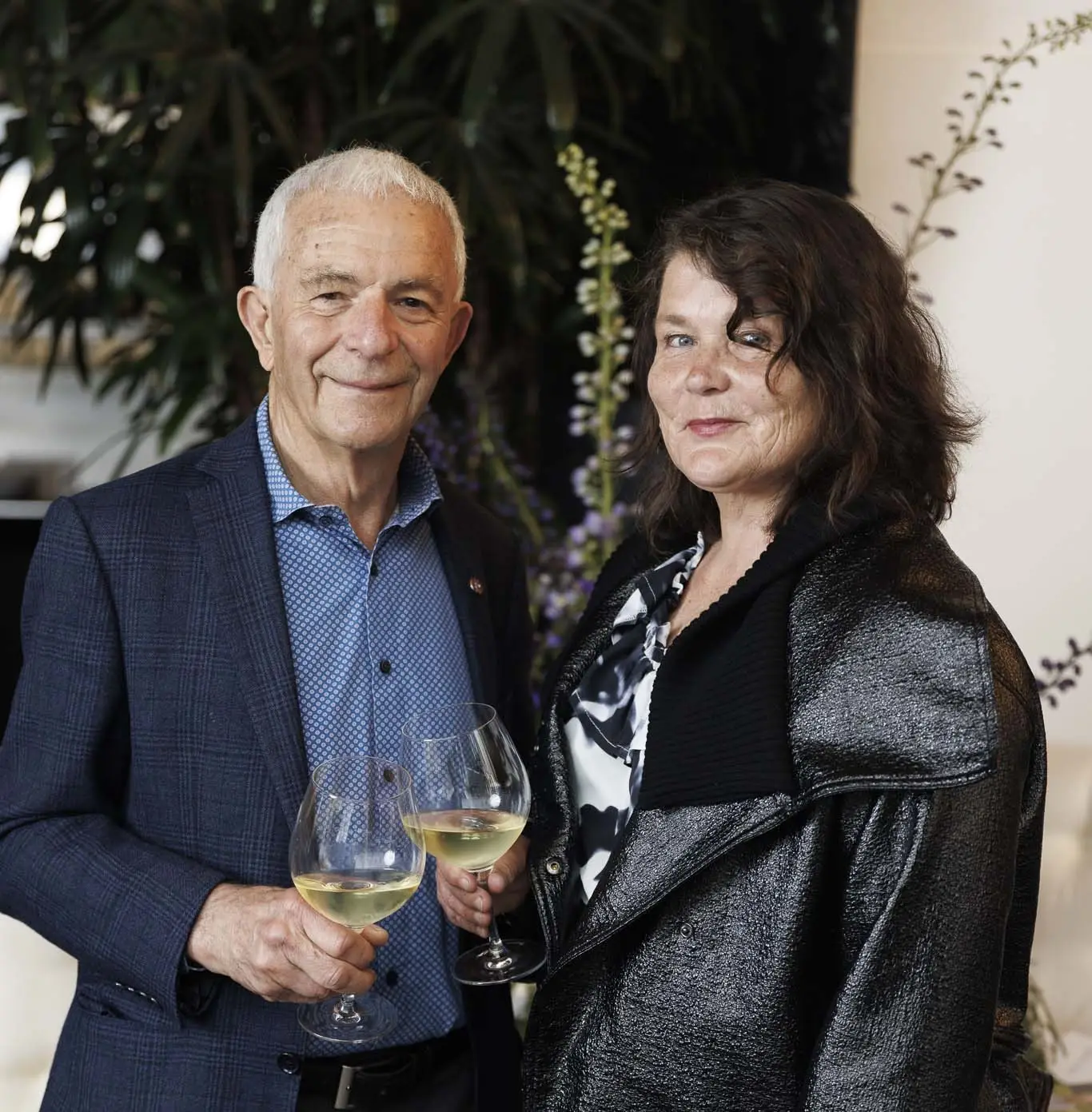This story was written by Sophie Preece at New Zealand Winegrower
A self-confessed “nerd” with a penchant for policy and a passion for sociology has been recognised for his commitment to New Zealand’s wine industry.
Xan Harding’s road to Hawke’s Bay winegrowing veered from a horticultural science degree in Palmerston North to a banking career in China, via policy work in Wellington and a Muscat-fueled epiphany on his 30th birthday.
When he and his wife Ali planted vines in Hawke’s Bay in the early 2000s, Xan decided he’d keep just one foot in the vineyard, stepping the other squarely into governance. “It didn’t take me long to work out that grapes are mostly about repetition and I needed stimulation off the vineyards,” he says, looking back on 14 years with Hawke’s Bay Winegrowers, five years on the New Zealand Winegrowers (NZW) board and finance committee, two years with the Sustainable Winegrowing Committee, and a seat at the table of Hawke’s Bay Labour Governance Group, Hawke’s Bay Winegrowers Charitable Trust, and Hawke’s Bay Future Farming Trust. In 2022 he was elected as a councilor on Hawke’s Bay Regional Council, while growing biodiversity, electrification and organics on his own Bridge Pa vineyard.
“I am easily bored if doing one thing,” admits Xan, who has been made a 2024 NZW Fellow, recognising his dedication to industry organisations.
Hawke’s Bay Wine Chief Executive Brent Linn calls Xan “a fount of knowledge about what has happened and happening in the Hawke’s Bay Wine scene”. He has been tenacious, reasoned and collaborative in his approach to issues affecting the industry, and in particular with regard to water, Brent says. “Xan has always brought a very reasoned science-based logical approach, and often that is what is missing in some of these discussions.”
The road to wine
Xan grew up in Upper Hutt, in a family of “Forest and Birders”, then studied Horticultural Science at Massey University. In 1987, with an honours degree in cell transplant vegetable production hot in hand, he grabbed a job in banking, “in the middle of a share market bubble”. Banks were keen to professionalise and were taking graduates from across the board, “and I could get paid double going to a bank”.
He moved to Auckland for five years as an ANZ cadet and corporate banker, before moving to Wellington for a stint of policy work, which “reinforced my nerdiness”, he says. Put another way, “that refined my latent abilities to be analytical”. Four years in Wellington led to five years in China, first as the ANZ Group Representative for South China, then in Shanghai as China Chief Operating Officer in the lead up to Y2K. In the midst of that period, Xan had “a bit of an epiphany” while celebrating his 30th birthday in the White Swan Hotel in Guangzhou. “I had a beautiful Muscat and it was a lightbulb moment,” he says, calling himself an “enthusiastic quaffer” until that moment. “It triggered my thinking around the wine industry, and a great appreciation and interest in how fine wine can be.”
In 1996 he and Ali bought a block of land on the coast at Haumoana, which he believes had previously been a Corbans vineyard, prior to the government’s vine pull in 1986. The land was in a state of “rack and ruin”, but in 2000, five years after the White Swan epiphany, they returned to New Zealand and set about planting vines, tapping into guidance from industry pioneer Mark Nobilo.
The vines were barely in the ground before Xan was on the Hawke’s Bay Grape Growers Association, eagerly exercising his off-field talents. He was Chair of that organisation for a few years as it wound down, and in 2006 helped write the constitution for the new iteration of Hawke’s Bay Winegrowers, before becoming Vice Chair of that industry association through to 2018, and a committee member until 2020. He far preferred the vice position to being chair, focusing on the “nuts and bolts” that support the industry. “So much of Hawke’s Bay Winegrowers work is representational and my personal view was that it was better a winemaker doing that stuff,” Xan says. “I had no desire to lead in that way.”
Instead, he spent 14 years behind the scenes, working with the accounting and administrative teams, while tackling issues of labour, water-related policy, and planning changes. Xan notes that others before him had done a good job in cementing the place in the District Plan for winegrowing as a vertically integrated industry, with accommodative rules in the plan around cellar doors, winery and grape production on one site. “I was involved in various efforts to preserve that kind of regime and deal with other things that came along, like gas guns and frost fans. Fairly quickly that grew into the wave of more popular concern about the state of waterways in the early 2000s.”
Wine into water
Xan became increasingly involved in catchment conversations, linking communities, council and the wine industry, including as an industry representative in the council plan for the integrated management of land and water resources in the Tūtaekurī, Ahuriri, Ngaruroro and Karamū (TANK) catchments. “I became the go to person to represent Hawke’s Bay Wine’s interests in water and environment and environmental regulation.”
He had worked and travelled in China’s Pearl River Delta, so knew how bad a degraded waterway could be. However, he doesn’t call himself an environmentalist (“such a loaded term”), considering ‘humanist’ a more apt description. When he turned 50, he took on a research project that combined the two, following his Diploma in Environmental Management with a Sociology Masters looking at the relationship between catchment groups and Te Mana o te Wai, a te ao Māori concept encompassing the relationship between water, environment and communities.
Six months into his still-uncompleted studies Xan was offered a job with the regional council as a senior advisor on TANK catchments, so stepped out of the talk and into the walk of the topic. Then in late 2022 he was elected to Hawke’s Bay Regional Council, bringing his experience as a grower, a humanist, and a “wanna be sociologist” to the role.
Amidst all of this, he and Ali still grow grapes, with a vineyard in Bridge Pa, where they’ve planted a corridor of indigenous species between blocks to attract native birds, insects, skinks and geckos, have solar panels for irrigation, run a fleet of Nissan Leaf electric cars, get around the vineyard on electric bikes, and should reach full organic certification for their Syrah and Cabernet blocks this year. The measures are about growing biodiversity and responding to the threat of climate change, which was apparent before Cyclone Gabrielle hit vintage 2023, with earlier bud burst and ripening year on year, Xan says. But having a climate-driven cyclone make “a hell of a mess” in your region puts you automatically into adaptation mode, he says. “Your lofty ideals around mitigation go right out the window in cold hard practical terms when you are hit by such an event.” Other wine regions in New Zealand and abroad are “just one climate-exacerbated weather event away from a similar experience,” he adds. “We can only hope and plan that collectively we can learn from that and have enough time up our sleeves to do something about the root cause.”
Now, nearly 30 years after his muscat epiphany, Xan is juggling another ball, as General Manager Operations and Sustainability for Japanese company Greencollar New Zealand. “This is such a wonderful opportunity for Hawke’s Bay because they have aspirations to grow 100 hectares of individually hand sculpted bunches.”
